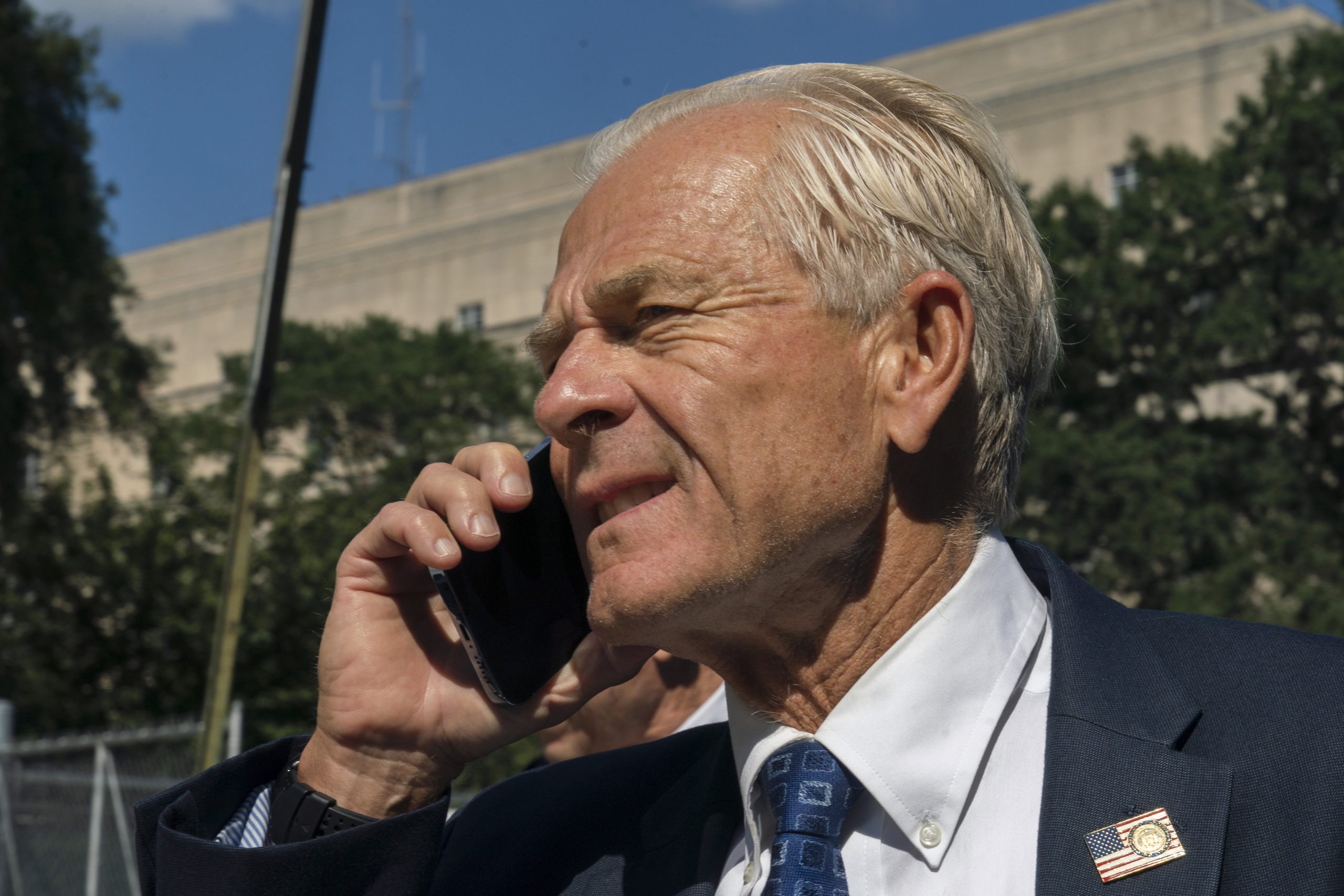Former White House adviser Peter Navarro suffered a setback in his court petition for government records he claims could prove he was the victim of selective prosecution.
A federal judge denied Navarro’s request to compel discovery to attain additional documents Monday, arguing it was not clear what material the onetime White House adviser sought. He also cast aspersions on Navarro’s underlying assertions that he was the victim of a political vendetta in the contempt of Congress charges levied against him.
EX-TOP TRUMP ADVISER RIPS ‘THIEVERY’ OF WHITE HOUSE DOCUMENTS DURING PRESIDENCY
“The court is at a loss to know what more Defendant wants produced,” the judge wrote. “If Defendant believes there are specific records that the government has not yet disclosed, he can come back to the court. On the present record, however, there is nothing to compel relating to the Committee’s composition and the exercise of its subpoena power.”
Navarro argued the Justice Department selectively prosecuted him in the contempt of Congress case while leaving former White House chief of staff Mark Meadows and former deputy chief of staff Dan Scavino off scott-free.

All three men allegedly defied Jan. 6 committee subpoenas, citing former President Donald Trump’s assertion of executive privilege. They were held in contempt as a result.
Unlike Navarro, neither Meadows nor Scavino faced charges from the DOJ, leading him to argue it was because he was publicly outspoken against the committee.
“Both Meadows and Scavino received correspondence from President Trump directing them not to respond to the Select Committee’s subpoena,” District Judge Amit Mehta wrote in his ruling. “Second, both Meadows and Scavino, through their counsel, had extensive communications with the Select Committee about subpoena compliance.”
Navarro, 73, had “no specific instruction to invoke executive privilege” and did not attempt to accommodate the panel like Meadows and Scavino, Mehta added.
The former White House trade adviser pleaded not guilty to two misdemeanor contempt of Congress charges in June. If convicted, he could face up to one year behind bars and a $100,000 fine per charge.
“We appreciate the ‘heavy burden’ Dr. Navarro has to force the government to disclose evidence of its prosecutorial motives. Judge Mehta’s ruling lays out a clear framework for meeting that burden and we’re confident that as the evidence comes forward our next motion to compel will meet that burden,” a lawyer for Navarro said in a statement to the Washington Examiner.
His petition included a redacted section requesting a specific demand for government disclosure. Mehta directed the government to give the U.S. District Court for the District of Columbia a rationale for not disclosing that information by Sept. 20.
CLICK HERE TO READ MORE FROM THE WASHINGTON EXAMINER
In a similar case, Steve Bannon, who unlike Navarro was not a member of the Trump administration during the events surrounding the Capitol riot, was found guilty of contempt charges in July. He is slated to face sentencing in October.
Navarro’s trial in the contempt case is set to begin in November.

